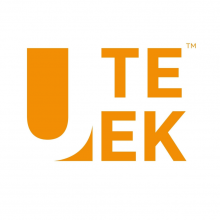
There are 18 Companies in Tunisia
that provide NodeJS Development Services!
Low prices and the talent pool are the main reasons why Tunisia managed to attract direct foreign investments from international companies and organizations. Additionally, a valuable resource for the country's IT sector are skilled professionals, who over time have earned valuable experience and have increased the country’s performance in the field of digital services.
Discover Top IT Companies in Tunisia specialized in NodeJS and other related services. Find the best IT service providers for your projects.
Node Js is a JavaScript runtime environment that allows developers to run JavaScript code on the server-side. Unlike traditional server-side technologies like PHP or Ruby, which are typically used for handling server tasks, Node.js enables developers to use JavaScript for both client-side and server-side development.
Handpicked companies • No obligation to hire • 100% risk-free
Featured Companies in Tunisia
This month, the following NodeJS Development companies managed to provide an outstanding service and support. It's worth taking a look.
Mobirevo is a Leading custom software development agency focused on web, mobile app development & saas application development.
ZetaBox delivers custom software development, transforming ideas into powerful, scalable solutions with cutting-edge technology and client focus.
A pioneer in travel technology with a variety of services offering cutting-edge IT solutions for the international travel industry.
Explore Top NodeJS Development Companies in Tunisia
Digital Rise Solutions: Premier SEO agency in Tunisia offering expert consultancy. Enhance online presence, increase traffic, and achieve top rankings
Services:
Solutions innovantes de développement web et mobile pour les entreprises, avec SEO et ERP sur mesure pour une transformation digitale efficace.
Rodoud.com: Your 24/7 AI-powered chatbot for seamless customer interactions, smart automation, and personalized support across all channels.
Tailored Solutions for Mechatronic Systems, AI & Automation, from embedded systems and ERP platforms to machine learning–driven applications.
PROVIDING THE SIMPLEST SOLUTIONS FOR YOUR MOST COMPLEX PROBLEMS
Building Digital Empires: SilkDev specializes in rapid, high-conversion web design and development for industry leaders.
Avempace is a design center for embedded systems and IoT solutions with a proven expertise of real time audio/video communication, wireless and RFID
Services:
Entreprise des services numérique en Tunisie et en France
Astra Digital Solutions builds custom websites, designs, and SEO strategies to help brands grow and stand out in the digital space.
Interested in starting your new career in tech? Learn to code at one of the top coding bootcamps Build your first website and app in a matter of weeks
eDonec was founded by two engineers back in 2017. We grew technically, financially and as a human structure at a relatively slow but solid pace tackli...
We help companies digitize their operations through innovative software solutions
DuetoData is your digital Solution provider, We unlock new businesses through Digital Solutions based on Data.
Filter NodeJS Development Companies in Tunisia by Cities
Find the right tech company near you or from a specific city. Some of the best companies might be located in smaller cities.
Find more NodeJS Development companies around the world
TechBehemoths is the world's most advanced and user-friendly platform to match IT Companies with real clients without hustle.
The Tunisian IT Industry: Overview & Insightful Data
Tunisia aims to position itself as a strategic hub in the Middle East and North Africa by becoming one of the top-performing countries in the region in terms of datacom infrastructure and IT business environment.
In order to promote Tunisia as an attractive destination for outsourcing services and an anchor in the global digital movement, the government has lifted the ban imposed by the Telecommunications Regulatory National Agency (ANRT) on Internet Protocol (VoIP) services.
According to a report published by The Brookings Institution in October 2016, the VoIP ban resulted in US$320m of economic loss for Tunisia during the first half of 2016. The situation ameliorated in 2024, with GDP growing by 1.4% with a slow recovery from the challenges in 2023.
In terms of digital progress, Tunisia still struggles with disparities in access to computer technologies in crucial sectors. Even though 60% of Tunisians had access to the internet last year, the country’s 2025 network readiness index remains relatively low, ranking 96th out of 139.
Why You Should Work With Tunisian IT Companies
Low prices and experienced professionals are the main reasons why Tunisia managed to attract direct foreign investments from international companies and organizations. Since the country has focused a lot on BPO services, it may be challenging for locals to establish their own IT and digital companies in a country with a poorly developed IT industry.
What You Should Pay Attention to When Working With Tunisian IT Companies
The local IT companies are mainly focusing on BPO due to a poorly developed IT infrastructure. The only valuable resource remains skilled professionals, who over time have earned valuable experience and have increased the country’s performance in the field of digital services.
How Reliable Are Tunisian IT Companies
In terms of reliability, the Tunisian IT companies benefit from foreign companies’ reputations. 82% of all IT companies from Tunisia are multinational or international agencies and investors aiming to attract a low-cost and decent quality workforce.
The main investors in the Tunisian IT industry are French tech companies, which are extending their network and influence in North Africa and the Mediterranean regions.
How Does the Tunisian IT Industry Relate to the Neighboring Countries?
The close proximity to Spain makes Tunisia look weak in front of new technology challenges, and the poorly developed IT infrastructure, with banned services and risk to terrorism, gives no chance to the country to compete with Spain or Portugal in South-West Europe.
On the other hand, Tunisia is probably the most developed country in North Africa and has the potential to achieve what it was aiming for in the first place - A strategic regional hub. However, Tunisia needs strong financial support from the international community and also transparency and democratic institutions to lead the necessary reforms for the country’s development overall, and particularly in the IT industry.
What is NodeJS and what are its benefits for your projects?
Node Js is a JavaScript runtime environment that allows developers to run JavaScript code on the server-side. Unlike traditional server-side technologies like PHP or Ruby, which are typically used for handling server tasks, Node.js enables developers to use JavaScript for both client-side and server-side development. Below we’ll dive deeper into the types of projects built with it, and how companies can leverage it for their projects:
Node.js is built on the V8 JavaScript engine from Google, making it incredibly fast and efficient. It uses an event-driven, non-blocking I/O model, which makes it ideal for building scalable and real-time applications. Node.js is particularly well-suited for projects that require high concurrency, such as web applications, APIs, chat applications, streaming services, and more. It has a large and active community, which has led to a rich ecosystem of libraries and packages available via npm (Node Package Manager), simplifying development tasks.
As for the type of projects that can be built using Node.js, we can name the following:
- Web Applications: Many web applications are built using Node.js, often using web frameworks like Express.js. These applications can range from small personal websites to large-scale, enterprise-level platforms.
- APIs (Application Programming Interfaces): Node.js is commonly used to create RESTful APIs that allow different services or applications to communicate with each other. This is essential for building services that provide data to mobile apps, websites, and other clients.
- Real-time Applications: Node.js is favored for real-time applications, such as chat applications, online gaming, and collaborative tools. The event-driven architecture of Node.js is well-suited for handling multiple concurrent connections.
- Streaming Services: Media streaming platforms and services that deliver audio and video content use Node.js to efficiently manage and serve media files to users.
- IoT (Internet of Things): Node.js is used in IoT projects to handle data collection from sensors and devices, process that data, and communicate with cloud services.
- Serverless Functions: Node.js is a popular choice for building serverless functions or AWS Lambda functions due to its lightweight and quick startup times.
Node.js is a versatile technology that can be effectively utilized in both smaller and larger projects, but its suitability hinges on several key factors.
For smaller projects, Node.js offers distinct advantages. Its event-driven, non-blocking I/O model allows developers to rapidly prototype and develop applications. This makes it an excellent choice for creating functional prototypes, minimum viable products (MVPs), or simple web tools swiftly.
Node.js's efficiency in handling I/O operations can lead to responsive user experiences, which is valuable for small-scale applications like personal websites, blogs, or straightforward web tools. Moreover, Node.js itself is lightweight, making it suitable for projects with minimal hardware or resource requirements. It doesn't impose significant overhead, making it a cost-effective option.
Node.js is also well-suited for serving as a backend for Single-Page Applications (SPAs), handling API requests, and serving static files efficiently. Its ability to use JavaScript both on the server and client sides can reduce development costs by enabling code reuse and a single development skill set.
For larger projects, Node.js remains a compelling choice for various reasons. Its ability to handle a large number of concurrent connections positions it favorably for projects with high traffic and user loads. It's designed to scale efficiently, allowing it to distribute workloads across multiple servers or containers, making it scalable and robust.
In larger applications with complex functionality, Node.js can be employed to build microservices that communicate efficiently with each other. This modular approach enhances maintainability and facilitates development on a larger scale.
Node.js's event-driven nature also makes it an ideal candidate for larger projects requiring real-time features. It excels in managing multiple simultaneous connections, making it suitable for applications such as messaging platforms, online gaming, or collaborative tools.
Additionally, Node.js continues to offer development speed advantages regardless of project size, which can be particularly valuable in meeting tight project deadlines.
Furthermore, for larger projects with JavaScript as the primary language on both the frontend and backend, Node.js facilitates streamlined development processes, code sharing, and collaboration among teams working on different parts of the application.

















